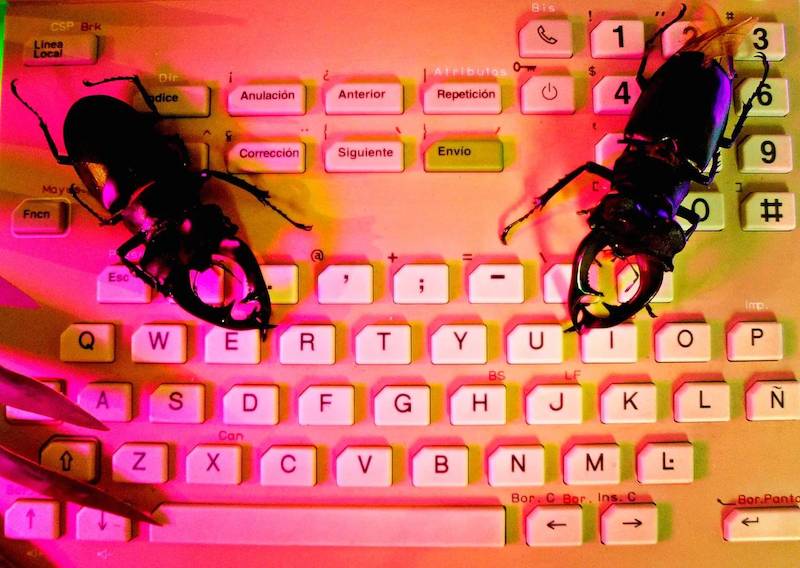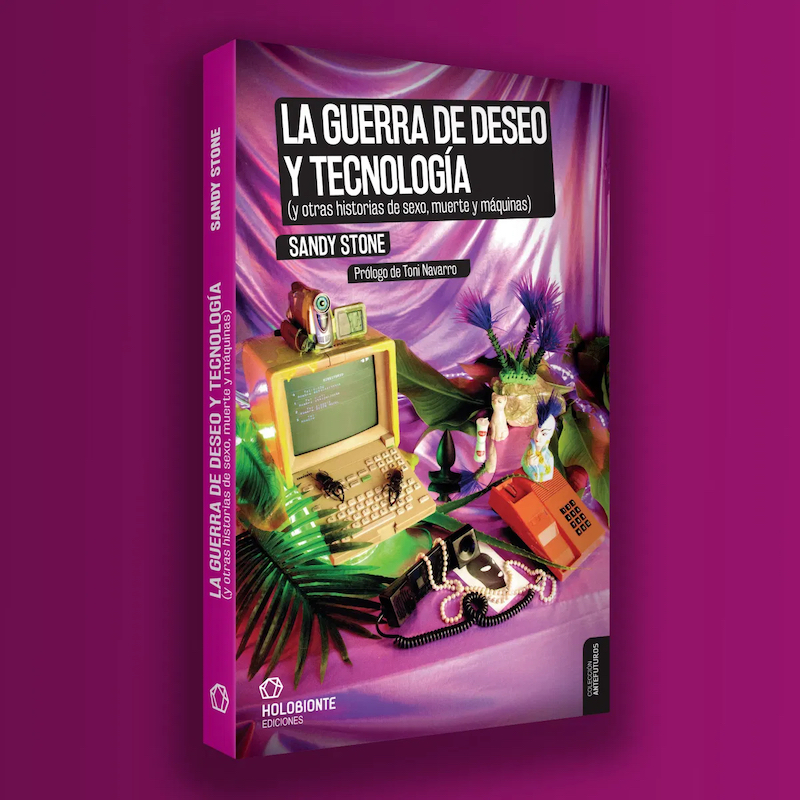Search
To search for an exact match, type the word or phrase you want in quotation marks.
A*DESK has been offering since 2002 contents about criticism and contemporary art. A*DESK has become consolidated thanks to all those who have believed in the project, all those who have followed us, debating, participating and collaborating. Many people have collaborated with A*DESK, and continue to do so. Their efforts, knowledge and belief in the project are what make it grow internationally. At A*DESK we have also generated work for over one hundred professionals in culture, from small collaborations with reviews and classes, to more prolonged and intense collaborations.
At A*DESK we believe in the need for free and universal access to culture and knowledge. We want to carry on being independent, remaining open to more ideas and opinions. If you believe in A*DESK, we need your backing to be able to continue. You can now participate in the project by supporting it. You can choose how much you want to contribute to the project.
You can decide how much you want to bring to the project.

Review of The War of Desire and Technology (and other stories about death, desire, and technology). Ed. Holobionte (2020), translation by Mauro Reis and Federico Gonzalez Giordano
“Don’t expect to find advice here, unless you’re crazy”, Sandy Stone
“To live in the Borderlands/you must live sin fronteras/be a crossroads”, said the legendary Chicana poet, activist and academic Gloria Anzaldúa, as cited by Stone herself in one of the texts-artifacts which make up that book. In the same way that the concept of “new mestiza” became the bridge Anzaldúa developed in order to get around cultural binarisms, removing barbed wire for the rising postcolonial feminism in American academia in the 80s, the life and work of Sandy Stone embodies the practices and performs the theories she advocated for in a mixed coexistence engrained in artistic, activist and academic practice and discourse.
However, the liminal spaces transited by Sandy Stone have nothing to do with the physical border symbolised by the Río Bravo in Anzaldúa’s bilingual, multicultural experience, but with the minefields of gender politics. In her own slippery way, Stone founded, backed by Donna Haraway, acting as her mentor, transgender studies. “Create your own discipline or else be enslaved by someone else’s discipline”, she says in these enlightening texts (adopting an enlighted metaphor Sandy wouldn’t like at all) where her prosthetic fetish, Stephen Hawking, an apology of vampirism along with her famous essay The Empire Strikes Back pop up. The Empire Strikes Back: A Posttransexual Manifesto (1987), her rejoinder to Janice Raymond and her anti-trans manifesto The Transexual Empire: The Making of The She-Male (1979), which was directly aimed against her. As an active participant of the lesbian feminist community, Stone was part of the Olivia Records collective and on top of Janice Raymond’s tirades in the aforementioned manifesto, Stone even had to endure physical threats from the Gorgons, a paramilitary TERF group which boycotted events she took part in.
Far from framing herself as an early victim of transphobia, in that manifesto, we can find an exhibition of sexuality as a medical and legislative construction and a pioneering criticism of the “sexual transformation” narratives. Through the analysis of four trans people’s witnesses who reinforced the gender identification binary opposition arguing, for instance, “I was born in the wrong body”, Stone exposes the bias of institutional practices and discourses of psychiatry programs at the hands of the medical discourse of prestigious universities such as Palo Alto. That’s how Stone dismantles the construction of the transsexual as a clinical category, “an interesting human abnormality”, along with concepts such as “gender dysphoria”. “All of a sudden the old gender truths fable recounted by a charitable white New York patriarch in 1966 becomes pancultural in the 80s (…). Other emergent polyvocalities of embodied experiences, never introduced in the discourse, powerful as they are, disappear”, she affirmed, invoking the manifold dissonances, fragmentations covering the full range of desire and the possibilities of trans bodies against the onthologisation and demolition of phallocentric-binary myths by academic and scientific “truth fables”.
In this way, far removed from numbing theoretical treatises, this book contains really funny episodes, about “interdiscursive guerilla” gestures in posh New England universities where Sally challenged others with performances and actions inspired by Dada, punk, or Warholian imposture the inflexibility of institutional and discursive compartments and their audiences’ expectations. And that’s how, “trans” in her life and work doesn’t become the so-called “third gender” but a literary genre, a discursive genre in unending mutation. A “coyote”, an iconoclast, performer, surfer, and serial oppositionist against anything smelling of identitary binarism. An eager explorer of seams, awkward territories, an avoider of the prison of disciplinary languages, a pioneer of hacker culture and art research in New Media, Stone, constituted herself wriggling out as a nomad of subjectivity, between the academic, the professional and the personal. Toni Navarro’s introduction drafts a reading plan for this assemblage of manifestos, essays, and also fiction, in a compilation that is also quite representative of her life and work.


Photos: Iria Harakirina

Ana is fascinated to dive into books and movies, to approach with caution those tentacles that lie in the depths and to return to count what she has seen. She has published “Este es el momento exacto en que el tiempo empieza a correr” (Premio Antonio Colinas de Poesía Joven), the novels “La puerta del cielo” and “Hemoderivadas”, “Constelaciones familiares” (short stories, Premio Celsius Semana Negra de Gijón) and “Érase otra vez. Contemporary fairy tales” (essays). She currently lives and works between Berlin and El Paso, Texas, where she is a Bilingual MFA Fellow in Creative Writing at UTEP. Some of her texts have been translated into Portuguese, Italian, Polish, Lithuanian, German and English.
"A desk is a dangerous place from which to watch the world" (John Le Carré)